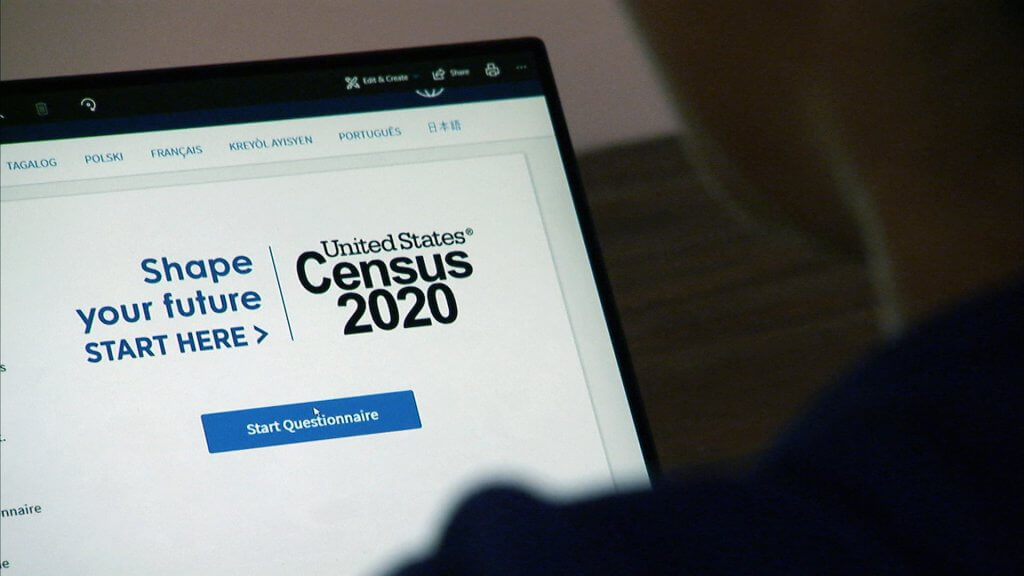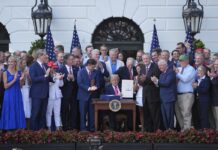
Time is running out to be counted, and Georgia’s local leaders are calling on residents to make sure they are signed up.
The deadline to participate in the 2020 census is Sept. 30, a month earlier than originally planned, after President Donald Trump ordered the early wrap-up. A federal judge has ordered the Census Bureau to continue the count, but resolution is still pending as this month’s deadline approaches.
Georgians should not expect they will get the extra month, said Savannah Mayor Van Johnson.
“This is the only thing that we will be talking about for the next 10 days,” Johnson said at a Monday online press conference. “This is the overtime. We know what happens if we don’t play the full four quarters, as evidenced by the Atlanta Falcons yesterday in that colossal mishap. You have to play the entire game.”
Johnson joined other municipal leaders from across Georgia to urge residents to participate in the once-a-decade count. The state has a lot of ground to make up before the deadline.
As of Monday, an estimated 90.7% of households have been counted, according to the U.S. Census Bureau, leaving Georgia ranked 47th out of the 50 states, Washington and Puerto Rico. A low participation rate could mean big money left on the table when the time comes to distribute federal tax dollars.
The census determines the distribution of about $1.5 trillion in federal funding across state and local governments, and each uncounted person would cost Georgia about $3,850 each year until the next census in 2030, according to the Georgia Municipal Association.
“It would take us missing just 28 of our neighbors to lose more than a million dollars of money we’ve paid up to Washington that’s not coming back down here,” said Rome Commissioner Wendy Davis. “If you don’t get counted in the census, you’re still paying your taxes, you still have all those obligations, but we’re not having, as a community, the right to say you’re here with us because the numbers say otherwise.”
Rural communities can be particularly harmed by undercounts, said Bill McIntosh, mayor of Moultrie where about 14,000 people live.
“We, and similarly situated small communities such as us, have to really get out and beat the bushes to make sure that we count everyone and let them understand that their very existence is and the quality of their life and the benefits that they receive can be very dependent upon getting out and participating in the census,” McIntosh said.
Slightly under half of Moultrie residents filled out their census on their own, compared with over 60% for the state as a whole.
Census data is also used to draw district lines for elected officials, another area in which rural districts come out on the short end, said Larry Hanson, executive director of the Georgia Municipal Association.
“Every time we have redistricting, the districts in Atlanta are getting smaller and smaller because they’re more densely populated, and rural areas are getting larger and larger, meaning the rural parts of the state are having less representation than they’ve ever had as they are becoming larger, and that truly is an issue in representing all of Georgia in the General Assembly,” he said.
This year’s census was the first one conducted primarily online, and the relative lack of high-speed internet in Georgia’s rural areas pushed turnout down, McIntosh said. The incorrect belief that the government could use census data to monitor or punish participants is another factor.
The COVID-19 pandemic has likely depressed the count across the country by keeping census-takers out of hard-hit neighborhoods and making residents less likely to talk with strangers at the door. The stress from the pandemic, the economic downturn, police violence and an upcoming election may also discourage participation, said East Point Mayor Deana Holiday Ingraham. But participating in the census is a way of having your voice heard and helping others in your community.
“People really want to be able to show their power, exercise their power and have their power make a difference,” she said. “And I think, fundamentally, we have to make sure that our residents and people understand that the people do have the power, and that is through the power of being counted and the power of voting. When we count, we matter.”
The census can be taken by returning a mailed form, by phone at 844-330-2020, or online at www.2020census.gov through September 30.
This article appears in partnership with Georgia Recorder






